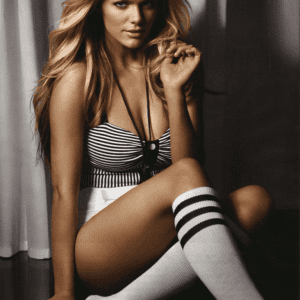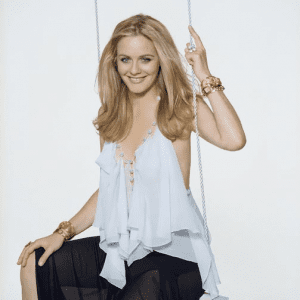
When Robert Hoge entered the world, his parents were not prepared for what they saw. He was born with a large tumor in the middle of his face, pushing his eyes to the sides of his head, and two severely deformed legs. For his mother, Mary, the shock was overwhelming. She had expected a healthy, beautiful fifth child as her birthday gift. Instead, she received a challenge that would test her strength, love, and perception of beauty.
In her private journal, Mary confessed emotions that would haunt her for years: “I wished he would go away or die or something. I just wanted to be finished with it all.” Harsh words, yes—but born from fear, confusion, and heartbreak.
Video: Own your face | Robert Hoge
A Family’s Difficult Choice
When Mary and her husband returned home from the hospital, they left Robert behind. She couldn’t bring herself to face the reality of her son’s condition. But days turned into weeks, and her decision weighed heavier with each passing moment. Finally, she gathered her children and asked them to vote: should they bring their baby brother home? Every one of them said yes.
That vote changed everything. Robert finally came home, and though the road ahead was steep, love found its way into the cracks of fear and uncertainty.
Childhood in Hospitals and Healing Through Pain
Robert’s early life was marked by endless surgeries and recovery. Doctors worked tirelessly to remove the tumor and reconstruct his face. The medical world became his second home. Each operation left him with new scars, both visible and invisible.
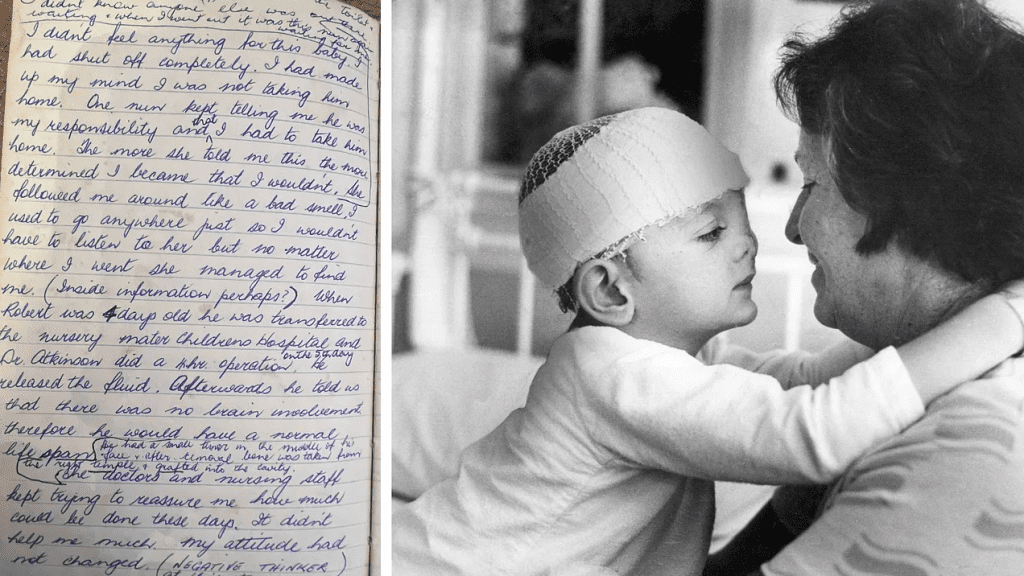
By the time he was fourteen, doctors offered him another major surgery—a procedure to rebuild his face and align his eyes, but with one terrifying risk: he could lose his vision forever. For the first time, the decision was his. His parents told him, “You’re old enough now. You decide.”
He thought long and hard until his brother said something that stayed with him forever: “What’s the point of being pretty if you can’t even see yourself?”
That simple truth shifted his entire perspective. He refused the operation. It wasn’t defiance—it was acceptance.

Learning to Live in a World Obsessed with Perfection
Robert’s decision marked a turning point. He stopped trying to meet the world’s impossible standards of beauty and started embracing what made him different. He realized that “ugly” was just another label—one that others used when they didn’t understand what made someone unique.

He once said, “Not everything has to be okay, all at once. Sometimes, life is messy before it becomes clear.” Those words define his journey: from rejection to resilience, from being “the baby no one wanted” to the man who inspired thousands with his story.
Facing the World’s Gaze
By age five, Robert already knew he was different. People stared. Children whispered. Even adults asked cruel questions. His mother felt ashamed of the stares, but his father handled things differently. At the pool, when other kids pointed at Robert’s missing legs, his father simply told them to run along, calm and unapologetic.
Video: Robert Hoge’s personal story ‘Ugly’ at Happiness & Its Causes 2014
It was his father’s quiet strength that taught Robert a lasting lesson: confidence isn’t about appearance—it’s about presence.
Owning the Word “Ugly”
Robert grew up in a world that constantly told him what beauty should look like. But instead of letting that definition confine him, he redefined it on his own terms. He began to use the word “ugly” not as an insult, but as a statement of truth—and empowerment.
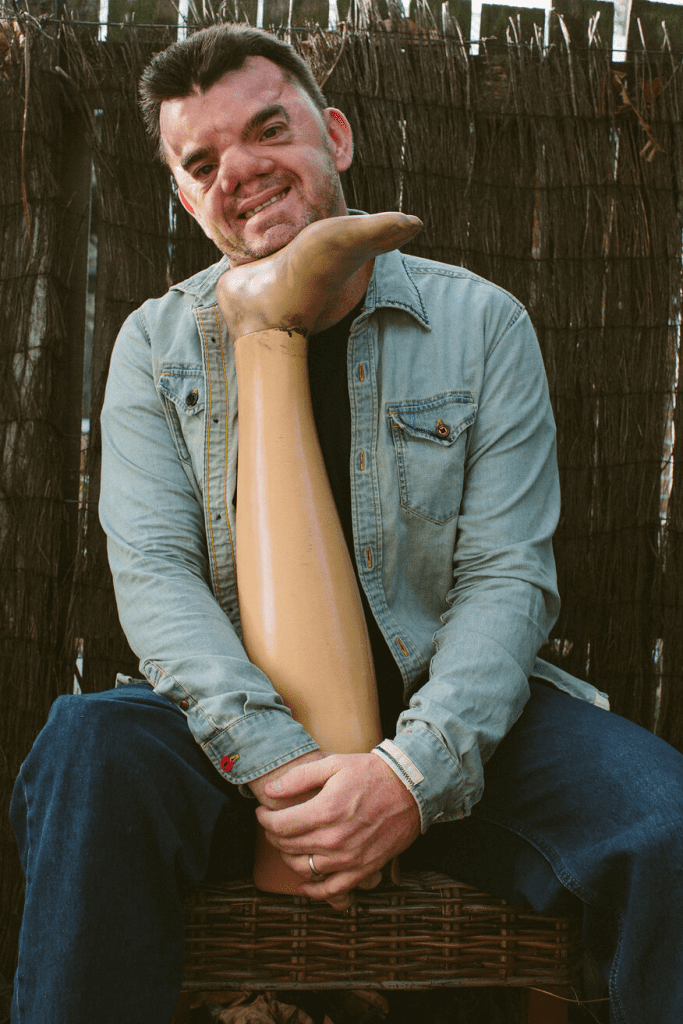
He once said, “Everyone has something they’re dealing with. My difference just happens to be visible.” That perspective became his power. In hospitals, he met kids battling illnesses, facing amputations, living with invisible struggles. He realized that everyone carries scars—some on the skin, others deep within the soul.
The Strength of Empathy and Connection
Robert learned that connection begins with curiosity. When people asked him about his face, instead of getting defensive, he welcomed the conversation. “Ask,” he would say. “It’s how we learn to understand each other.”
He believed empathy wasn’t about pity—it was about respect. By opening up about his disability, he invited others to see beyond it. His story reminded people that everyone’s journey is shaped by struggles, and acknowledging them doesn’t make you weak—it makes you human.
Redefining Beauty in a Superficial World
Robert’s reflections on beauty cut deeper than most: “Beauty isn’t a single destination. It’s a million paths leading to a million different places.”

For him, beauty wasn’t about symmetry or perfection. It was about authenticity. It was about energy, confidence, and kindness. He found beauty in people who were unapologetically themselves—who wore their scars with pride and lived without fear of judgment.
Today, he is a husband, a father, and a storyteller whose words continue to inspire millions. His life stands as proof that beauty isn’t something you’re born with—it’s something you build.
The True Meaning of Success
When asked what success means to him, Robert’s answer is simple yet profound: “Success means being whole.”
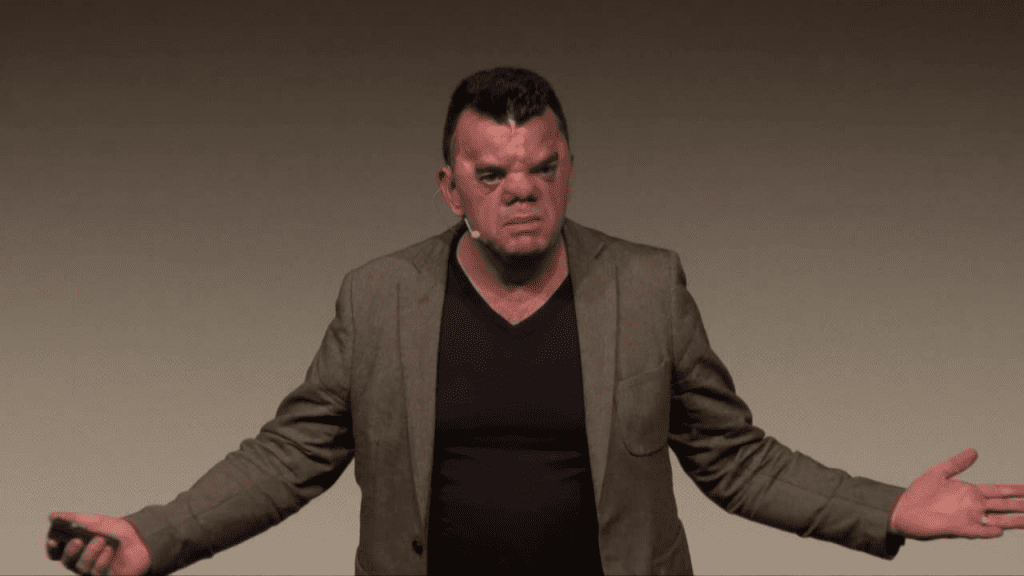
To him, success isn’t wealth, fame, or admiration—it’s peace. It’s waking up each morning knowing you’re proud of who you are. It’s feeling engaged with your world, your work, your family. It’s adding value, even in small ways, and knowing that you matter.
A Legacy of Resilience and Self-Acceptance
Robert Hoge’s story is not one of pity—it’s one of triumph. From the moment he chose to live life on his own terms, he stopped being a victim of circumstance and became a symbol of strength. His journey reminds us that the road to self-love is often uneven, but every scar, every detour, every heartbreak adds depth to the masterpiece we become.

Robert Hoge was born different—but his difference became his greatest gift. He taught the world that beauty has no single shape, and that strength isn’t found in perfection but in acceptance. His story is a testament to human resilience: that from pain can come purpose, from rejection can come redemption, and from the most “imperfect” beginnings can rise the most extraordinary lives.

